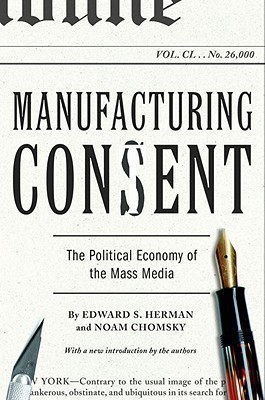More on this book
Community
Kindle Notes & Highlights
Read between
March 1 - March 7, 2022
THIRD WORLD ELECTIONS PROVIDE AN EXCELLENT TESTING ground for a propaganda model. Some elections are held in friendly client states to legitimize their rulers and regimes, whereas others are held in disfavored or enemy countries to legitimize their political systems. This natural dichotomization is strengthened by the fact that elections in the friendly client states are often held under U.S. sponsorship and with extensive U.S. management and public-relations support. Thus, in the Dominican Republic in 1966, and periodically thereafter, the United States organized what have been called
...more
A propaganda model would anticipate mass-media support of the state perspective and agenda. That is, the favored elections will be found to legitimize, no matter what the facts; the disfavored election will be found deficient, farcical, and failing to legitimize—again, irrespective of facts. What makes this another strong test of a propaganda model is that the Salvadoran and Guatemalan elections of 1982 and 1984–85 were held under conditions of severe, ongoing state terror against the civilian population, whereas in Nicaragua this was not the case. To find the former elections legitimizing and
...more
The refusal of the rebel opposition to participate in the election is portrayed as a rejection of democracy and proof of its antidemocratic tendencies, although the very plan of the election involves the rebels’ exclusion from the ballot.2 The sponsor government also seizes upon any rebel statements urging nonparticipation or threatening to disrupt the election. These are used to transform the election into a dramatic struggle between, on the one side, the “born-again” democratic army and people struggling to vote for “peace,” and, on the other, the rebels opposing democracy, peace, and the
...more
Nominally, their role is to see that the election is “fair.” Their real function, however, is to provide the appearance of fairness by focusing on the government’s agenda and by channeling press attention to a reliable source.3 They testify to fairness on the basis of long lines, smiling faces, no beatings in their presence, and the assurances and enthusiasm of U.S. and client-state officials.4 But these superficialities are entirely consistent with a staged fraud.
the government chooses observers who are reliable supporters of its aims and publicizes their role, and the press gives them respectful attention.
“Off the agenda” for the government in its own sponsored elections are all of the basic parameters that make an election meaningful or meaningless prior to the election-day proceedings. These include: (1) freedom of speech and assembly; (2) freedom of the press; (3) freedom to organize and maintain intermediate economic, social, and political groups (unions, peasant organizations, political clubs, student and teacher associations, etc.); (4) freedom to form political parties, organize members, put forward candidates, and campaign without fear of extreme violence; and (5) the absence of state
...more
In elections held in disfavored or enemy states, the U.S. government agenda is turned upside down. Elections are no longer equated with democracy, and U.S. officials no longer marvel at the election being held under adverse conditions. They do not commend the army for supporting the election and agreeing to abide by the results.
Lewis cites Supreme Court Justice Powell, who observed: “no individual can obtain for himself the information needed for the intelligent discharge of his political responsibilities.… By enabling the public to assert meaningful control over the political process, the press performs a crucial function in effecting the societal purpose of the First Amendment.” Therefore, as Judge Gurfein ruled in supporting the right of the New York Times to publish the Pentagon Papers after the government had failed to show any threat of a breach of security but only the possibility of embarrassment: “a
...more
On the contrary, a propaganda model suggests that the “societal purpose” of the media is to inculcate and defend the economic, social, and political agenda of privileged groups that dominate the domestic society and the state. The media serve this purpose in many ways: through selection of topics, distribution of concerns, framing of issues, filtering of information, emphasis and tone, and by keeping debate within the bounds of acceptable premises.
What is more, these actions of the national political police were only one element of government programs extending over many administrations to deter independent political action, stir up violence in the ghettos, and undermine the popular movements that were beginning to engage sectors of the generally marginalized public in the arena of decision-making.2 These covert and illegal programs were revealed in court cases and elsewhere during the Watergate period, but they never entered the congressional proceedings and received only limited media attention.
By contrast, as long as illegalities and violations of democratic substance are confined to marginal groups or distant victims of U.S. military attack, or result in a diffused cost imposed on the general population, media opposition is muted or absent altogether.3 This is why Nixon could go so far, lulled into a false sense of security precisely because the watchdog only barked when he began to threaten the privileged.
No simple model will suffice, however, to account for every detail of such a complex matter as the working of the national mass media. A propaganda model, we believe, captures essential features of the process, but it leaves many nuances and secondary effects unanalyzed. There are other factors that should be recognized. Some of these conflict with the “societal purpose” of the media as described by the propaganda model; some support it.


